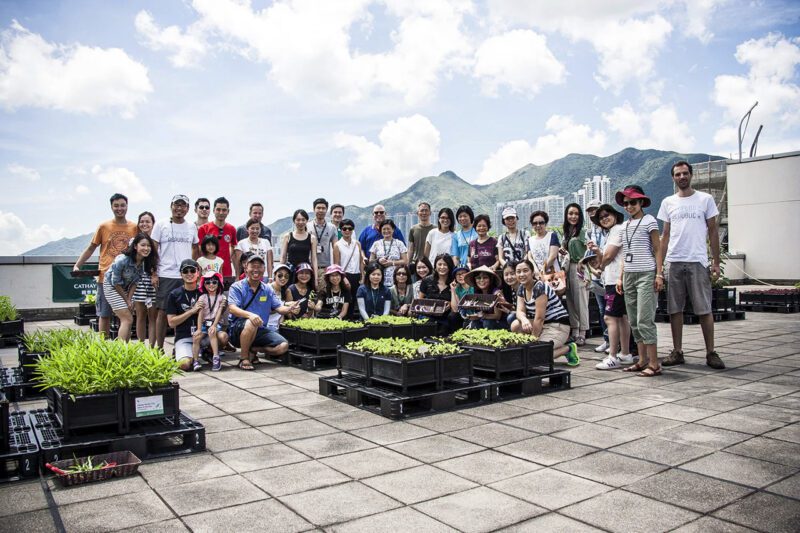Redefining Globalization
The paradox of collaborative impact investing in a fractured world
Insights from social investors in Hong Kong and Japan

How two social investors operate similarly yet distinctly in advanced economies.
Social Impact Partners in Hong Kong (SIPHK) and Social Investment Partners in Tokyo (SIPTKY), two independent organizations with over two decades of combined history, illustrate the nuanced similarities and differences of social finance in a North Asian context.
Both organizations provide funding and strategic support to founders of high-impact enterprises and non-profits. Over slightly more than a decade, SIPHK, an impact investor, has funded 10 organizations with scaling potential in financial returns and social impact. During a comparable period, SIPTKY, a venture philanthropist, has supported 15 organizations addressing Japan’s critical social issues. Both employ pro-bono strategic partners to perform comprehensive, private equity-style due diligence. For both investors, future impact and business potential outweigh past financial records.
 The financial tools employed by each investor differ slightly, reflecting distinct sector readiness and risk management approaches. SIPHK primarily provides loans and occasionally convertible loans. SIPTKY offers a broader array of financial instruments, including equity, loans, convertible loans, and grants. Both organizations emphasize that the type of financial instrument used does not necessarily correlate with an investee’s impact or profitability. More critical considerations include the ease of fund recycling, the investee’s legal structure, and their capacity for interest and loan repayment.
The financial tools employed by each investor differ slightly, reflecting distinct sector readiness and risk management approaches. SIPHK primarily provides loans and occasionally convertible loans. SIPTKY offers a broader array of financial instruments, including equity, loans, convertible loans, and grants. Both organizations emphasize that the type of financial instrument used does not necessarily correlate with an investee’s impact or profitability. More critical considerations include the ease of fund recycling, the investee’s legal structure, and their capacity for interest and loan repayment.
Beyond financing, both organizations strongly focus on post-investment capacity building. SIPTKY particularly stresses that non-monetary support significantly empowers founders to achieve organizational goals. SIPTKY engages closely with founding teams, conducting detailed assessments of long-term growth plans and recurring challenges such as marketing, sales, fundraising, accounting, talent management, and IT. Both organizations tailor their support to the specific developmental stage and personality of each founder, acknowledging that a “one-size fits all” approach provides minimal value. A nuanced contrast emerges in their approaches: SIPTKY acts as a sounding board through board seats and regular check-ins, enabling founders to independently own decisions, while SIPHK offers networking events, personalized business tutorials, and proactive communications to address emerging issues.
Social investees’ perspectives further enrich the narrative around social financing.
The co-founders of Snaildy Education Limited (“Snaildy”), a Hong Kong impact enterprise founded in 2019 focusing on students with special education needs, were primarily motivated by the urgent need for non-dilutive, flexible funding during a challenging economic period in 2023. Securing a HKD500,000 two-year loan from SIPHK led to a steep learning curve and rapid professional growth for the founders. Within months, they moved from having “no concept of investment, let alone impact investment,” to undergoing rigorous due diligence, prompting a critical evaluation of their operations.

Andrew Tsui; Photo by Mark Teo
Andrew Tsui, co-founder of Rooftop Republic Co. Limited (“Rooftop Republic”), recalls his initial experience with impact investment beginning serendipitously in late 2017, culminating in securing a HKD3 million loan from SIPHK in 2019. At the time, Rooftop Republic was a young urban farming start-up poised for digital transformation but largely considered un-fundable by traditional sources. SIPHK’s approach to organizational capacity building and below-market loan rates fit the start-up’s immediate needs. Andrew recalls the rigorous due diligence as akin to being “studied under a huge magnifying glass.” This rigorous process validated Rooftop Republic’s credibility and significantly accelerated the team’s learning curve in business and financial discipline.
Despite this, Andrew reflects on decisions made during macro-economic challenges faced post-investment, recognizing he should have reduced costs earlier to enable a quicker recovery. Though Rooftop Republic continues its post-COVID-19 recovery, Andrew firmly states: “I have no regrets as I made the right decision at the right time; Rooftop Republic made no lay-offs when everyone else was laying off staff.”
Andrew proudly acknowledges Rooftop Republic’s role in SIPHK’s growth, noting his enterprise was SIPHK’s inaugural enterprise investment, achieving a validated 10-year Social Return on Investment (SROI) ratio of 2.71. Reflecting on the experience, Andrew emphasizes, “Impact investment can fill some, but not all, of the financing valley of death,” highlighting the mutual learning inherent in the partnership.

Image Courtesy of Rooftop Republic
Recipients of social investment advise caution. Snaildy’s co-founders emphasize the need for trust and careful evaluation of loan repayment capabilities and the additional value investors can provide beyond money. Andrew concurs, advising careful use of loan financing, urging enterprises to critically assess whether additional funds can genuinely enhance revenue and business viability. Reflecting further, he warns against allowing an enterprise’s social impact to become merely an “entry ticket” for further fundraising, stressing the importance of clearly defined strategies for using investment effectively.

Rooftop Farms; Courtesy of Rooftop Republic
These local insights demonstrate why social investment will increasingly matter, despite its continued marginalization in mainstream finance discourse.
The essential question of how best to support long-term organizational capacity remains crucial. As enterprises become more familiar with varied financial instruments and funders grow aware of alternative funding models, both SIPTKY and SIPHK remain committed to driving action through blended finance solutions. Whether through venture philanthropy or impact investment, both agree that “founders are the ultimate beneficiaries,” as investments in organizational capacity inherently foster founder growth. Both investees and investors affirm that “relationship capital” is vital, arguing that financial capital poverty stems fundamentally from a lack of relationship capital. Thus, the question remains: Can impact investment or venture philanthropy effectively address this critical gap?
Related Content
Comments
Deep Dives
RECENT
Editor's Picks
Webinars

Featuring
Elizabeth Boggs Davidsen
CEO of GSG Impact
May 8 - 12:00 PM EST
News & Events
Subscribe to our newsletter to receive updates about new Magazine content and upcoming webinars, deep dives, and events.
Become a Premium Member to access the full library of webinars and deep dives, exclusive membership portal, member directory, message board, and curated live chats.
At Impact Entrepreneur, we champion fearless, independent journalism and education, spotlighting the inspiring changemakers building the Impact Economy. Diversity, equity, sustainability, and democracy face unprecedented threats from misinformation, powerful interests, and systemic inequities.
We believe a sustainable and equitable future is possible—but we can't achieve it without your help. Our independent voice depends entirely on support from changemakers like you.
Please step up today. Your donation—no matter the size—ensures we continue delivering impactful journalism and education that push boundaries and hold power accountable.
Join us in protecting what truly matters. It only takes a minute to make a real difference.
0 Comments